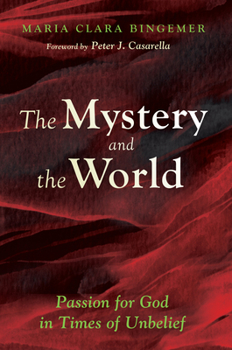The Mystery and the World
Select Format
Select Condition 
Book Overview
During the past century, an enormous effervescence of events changed the sociopolitical configuration of the world. The interpretation of these facts helped further deepen the crisis in which modern thought already found itself--and it generated the uncertain and unstable environment in which we live today, the so-called postmodernity, late modernity, or hypermodernity. In this context, one of the most profound impacts is most certainly the one on religion. During the twentieth century, religion proved not to be banished from the human horizon as the masters of suspicion intended. Known as the godless century, the twentieth century saw also a resuscitation of the search for the sense of life and spirituality. With the crisis of modern reason, humankind turned toward consumerism and provisional and ""light"" practices. The last century represents not only the height of the postmodernization process but also the rescue of the transcendent and absolute, even if it is an absolute without face and identity. It is in this scenario that religious experiences, apparently exiled by modern rationality, begin to occur and multiply again. Mystical experiences will be, then, the basis for highlighting recurrent characteristics with universal import. But they will show a different configuration than before. One will be able to find them not in so-called sacred spaces but in very secular ones; not so much within institutions but at the borders, or even outside them; not configured by a specific tradition but in an interface that makes more than one tradition meet and dialogue.
Format:Hardcover
Language:English
ISBN:1498284965
ISBN13:9781498284967
Release Date:May 2016
Publisher:Cascade Books
Length:402 Pages
Weight:1.64 lbs.
Dimensions:1.1" x 6.0" x 9.0"
Customer Reviews
0 rating





